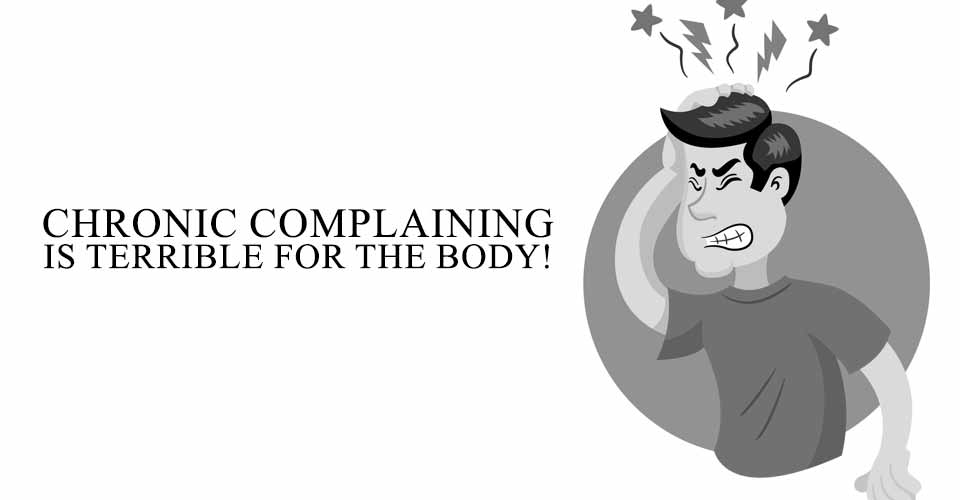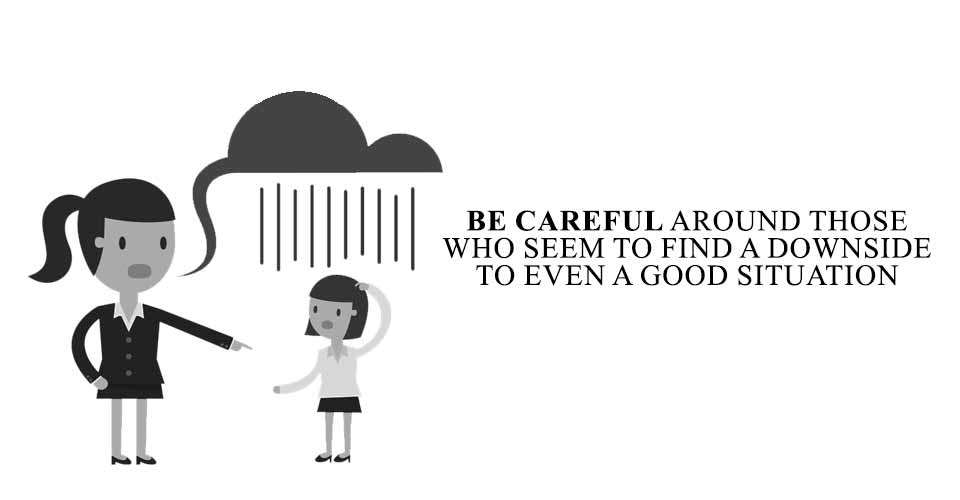The Horrific Consequences That Soaking Yourself In Negativity Has Over Your Mental and Physical Health Explained

Let’s face it. We all like to complain sometimes.
We do it in the name of therapeutic venting. We claim we are spreading information.
We use our negativity to bond with others.
There are plenty of logical reasons to let off steam this way. Really, however, we do it because it feels good.
Complaining can give us a temporary high. It brings a sense of instant gratification. We turn ourselves into the victim. We make ourselves feel superior, needed, or put-upon. In the moment, a strong venting session can give us a tremendous feeling of satisfaction.
In the long term, however, our complaining is toxic.
This is a practice that teaches us to seek out negativity.
Doing so does more than simply sour our outlook. It re-wires our brain for unhappiness. It puts undue stress on our body and our mind. If we allow it to, it can even impact our relationships and the well-being of our loved ones.
Here’s how it all works:
Medically

Chronic complaining is terrible for the body.
It wires our mind for unnecessary stress in an already stressful world. When our mind is stressed, our body reacts in profound and unfavorable ways. When we complain, our brain produces a stress hormone called cortisol. When released in excess, cortisol can weaken the body in significant ways. According to Psychology Today, cortisol can interfere with learning and memory, hinder immune function, lower our bone density, and cause weight gain. It is also known to increase blood pressure, cholesterol, and our risk of heart disease. Chronic stress and elevated cortisol levels also increase our risk for depression and other mental illnesses. Ultimately, it will lower life your expectancy.
How does that happen? The answer lies in the way that our propensity to find the negative re-wires our brain chemistry.
Neurologically

Did you know that chronic complaining actually changes your brain in a physical way?
As Steven Parton explains, “Throughout your brain there is a collection of synapses separated by empty space called the synaptic cleft. Whenever you have a thought, one synapse shoots a chemical across the cleft to another synapse, thus building a bridge over which an electric signal can cross, carrying along its charge the relevant information you’re thinking about.”
“Here’s the kicker,” he continues. “Every time this electrical charge is triggered, the synapses grow closer together in order to decrease the distance the electrical charge has to cross. This is a microcosmic example of evolution, of adaptation. The brain is rewiring its own circuitry, physically changing itself, to make it easier and more likely that the proper synapses will share the chemical link and thus spark together–in essence, making it easier for the thought to trigger.”
Every time we complain, our brain changes to make it easier to find negativity again.
This is dangerous when we consider that we do, essentially, live in our thoughts. Our brain decides how we experience our world. Just as a negative experience can be spun into a positive one, a wonderful thing can be ruined by a negative outlook. Our thoughts construct our reality. If you convince yourself that you live in a world of negativity, this is what will become true to you.
Socially

Even if we choose not to engage in a complaint session ourselves, simply being an audience for one can have a powerful impact.
The same mechanisms of the brain that allow us to empathize with others can also cause us to absorb their negative outlook. As Parton explains, “When we see someone experiencing an emotion (be it anger, sadness, happiness, etc), our brain “tries out” that same emotion to imagine what the other person is going through. And it does this by attempting to fire the same synapses in your own brain so that you can attempt to relate to the emotion you’re observing.” This does not mean you shouldn’t be there for a friend who needs some empathy during a rough time. It does, however, mean we should be careful around those who seem to find a downside to even a good situation. There is a big difference between working through difficult emotions and complaining out of habit. One is a human necessity. The other could kill you.
“What you’re supposed to do when you don’t like a thing is change it. If you can’t change it, change the way you think about it. Don’t complain,” wrote Maya Angelou. Take a lesson from her, and try out this philosophy. The next time you are faced with unpleasantness, change it. If you can’t change it, improve your outlook.

